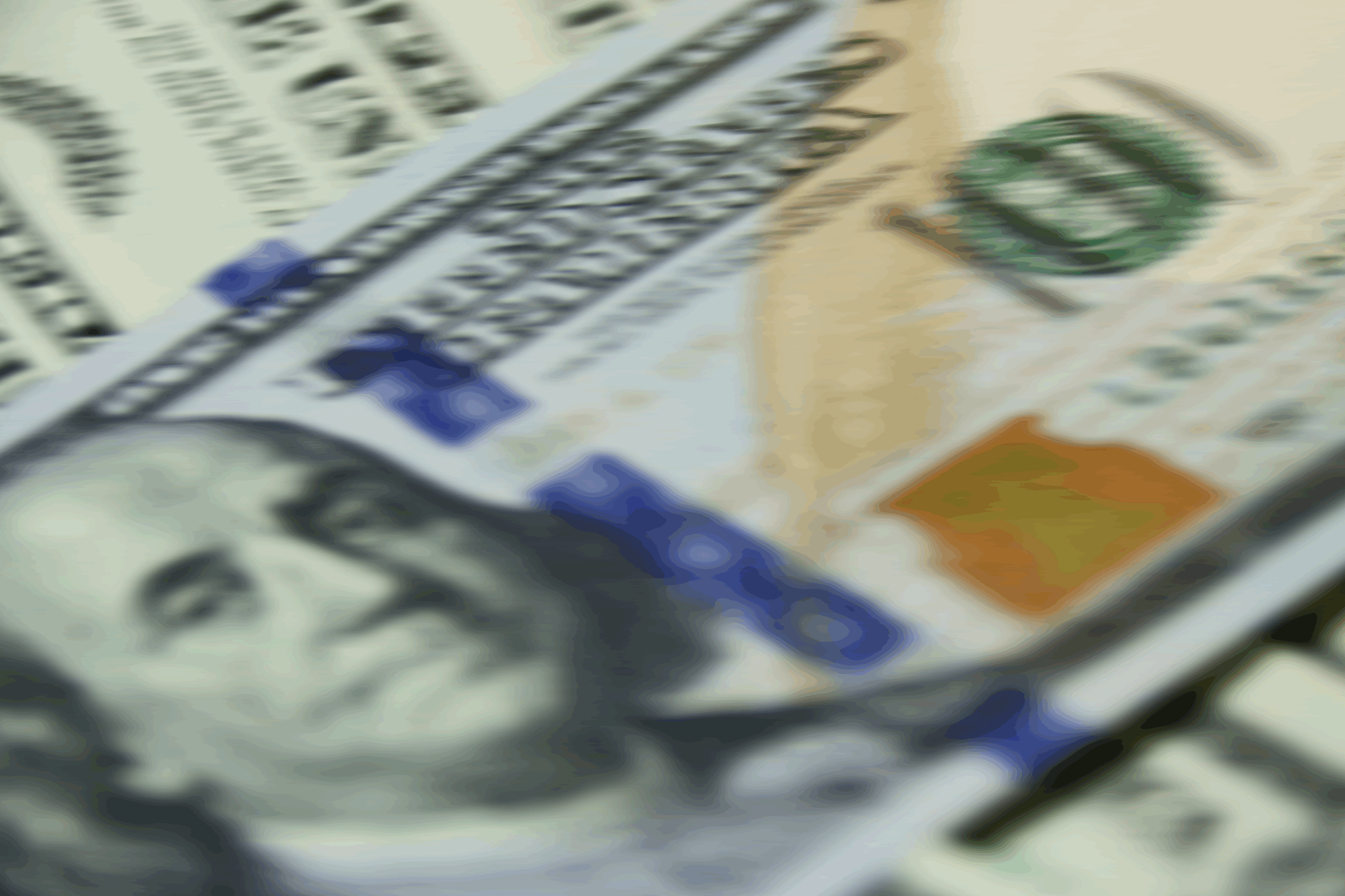Continue Reading
Biggest Finance Newsletter for Women
Join 200,000 other people interested in money, power, culture, and class.
Subscribe
I love being lied to by beautiful, rich women on the internet. Not just any influencer will do—my preferred shared hallucination is the business influencer, over whose sprawling imperial colonies the digital sun never sets. Recently, I’ve taken to watching a woman who I’m pretty sure is a scammer; one of those “coaches coaching coaches” types who sells a course about sales in a digital ouroboros of grift that fascinates me. (I once heard the tendency to become intrigued by things you find distasteful described as “oppositional curiosity.” It’s always nice to receive a new diagnosis.)
She often delivers her sales sermons while cocooned in her car’s crimson leather interior, taut forehead gleaming in the Miami midmorning sun, tanned boobs hoisted chin-level by the scubasuit-like material of an athleisure corset. She almost always appears to be coming from or going to the gym, but while adorned with about $20,000 worth of jewelry. In every video, she proffers pearls of wisdom about “closing” or “objections.” I sit entranced, typically on the foot of my unmade bed or slumped over midafternoon at my desk, mouth agape, as I patiently receive her instructions for business-oriented manipulation. She is, I learned from one video, freshly 24.
>
“There’s something magnetic, almost primal, about the personality type shameless enough to sell snake oil to strangers on the internet for $4,000.”
I noticed a random assortment of my friends from a variety of past life stages follow her. Do they share my sheepish anthropological interest, or are they more earnestly collecting tips for selling sales? Her videos telegraph access to vast, allegedly self-made riches with all the subtlety of a sledgehammer. In one recent video, she invites the viewer (that’s me!) to join her on a trip to purchase a glittering pink Rolls-Royce. In another, she assures the viewer that it’s never been easier to create generational wealth; that 19-year-olds are making six figures quickly and without degrees. Each video feels like a dispatch from an alternate reality.
There’s something magnetic, almost primal, about the personality type shameless enough to sell snake oil to strangers on the internet for $4,000. It’s darkly gratifying to witness this naked inevitability of the market: a flagrantly fraudulent offering in such a stunningly confident package. She is not an aberration of American late capitalism; she is its pure, female id. Reader, I can’t pull myself away. In a particularly self-aware selfie caption, she refers to herself as “Gatsby”—if “he were a 23-year-old blonde girl in Brickell.” Fitzgerald’s Gatsby is, of course, the titular character of The Great Gatsby, a novel about a man whose “extraordinary optimism and power to transform his dreams into reality make him ‘great’” despite the fact that his wealth mostly derives from “criminal activity.”
Like Gatsby, this woman and those like her appear to generate wealth and concomitant capital-B Businesses through sheer force of will, though it’s not always immediately clear how the Wealth and the Business might be connected, if indeed they are. What is this, if not the American Dream? She exists in stark opposition to the millions of people I read about in the news every day, working full time for low wages, still unable to afford groceries. I wonder if they’ve tried selling sales, a small voice buried deep in my Instagram-calibrated brainstem offers. How could money be so hard to come by when it appears to flow so freely to this young woman?
She exists in a parallel digital economy, an artifice of enterprise where fake experts sell fake products to real people for real money. Before the dawn of the internet, one might have had to stalk the streets of Brooklyn and ask passersby one by one if they had any confidence in them to hold onto a pocketwatch until tomorrow. No longer! The World Wide Web has granted access to a limitless supply of desperate suckers (and a few voyeurs, like yours truly) armed with Afterpay and a dream. Then again, to distinguish this particular arena of commerce as “fake” would imply the rest of our economic system—that which produces volcanic hoaxes like Enron or mortgage-backed securities or an entire class of products called “financial derivatives” swapped like trading cards among highly paid professionals, where management consulting firms construct simulacrums of humanitarian aid organizations for foreign governments, a sort of McKinseyian “Final Solution”—is somehow more “real.”
>
“There, suspended in the primordial ether where the laws of economic gravity cease to exist, you’ll find the likes of Sam Bankman-Fried and Jake Paul.”
In both economies, there’s a proportional inverse relationship between the length of your tether to reality and the amount of money you can make. Most people exist somewhere in the middle with normal jobs and normal incomes, coordinates where you’re unlikely to encounter pink Rolls-Royces. But the looser your relationship with the truth or your material and intellectual limits, the more likely you are to find yourself free-floating to the long tail where phenomena like venture capitalists and virality live, each equally likely to reward delusion with vast sums of cash. There, suspended in the primordial ether where the laws of economic gravity cease to exist, you’ll find the likes of Sam Bankman-Fried and Jake Paul. In Capitalist Realism, the late Mark Fisher argues that cataloging all of the system’s worst offenses—poverty, suffering, an endless barrage of Marvel movies—only serves to reinforce its legitimacy, its “realness.” The only way to undermine it, then, is to pull back the curtain and reveal the ways in which it is “inconsistent or untenable,” to demonstrate how its “‘realism’ turns out to be nothing of the sort.” In other words, a recognition that flips on the overheads, shines fluorescent light on the scaffolding of the Matrix, and reveals that its internal operating logic isn’t “real” at all.
That the most “real” jobs—cooking food, wrangling kindergarteners, bandaging wounds—are often those paid relatively low sums is less a reflection of economic efficiency and more a confirmation of this distortion. Sometimes I can’t be sure my digital pen pal’s persona isn’t an elaborate piece of performance art, a theatrical ode to the great thrill of acquiring commodities and services or a commentary on the absurdity of modern resource allocation and “value creation.” Then again, her vocation makes perfect sense when you consider the incentives of a modern economy which line the path of least resistance like apple trees, offering forbidden fruit to anyone who notices that even the “real” paths have a distinctly surreal quality to them, and this one looks shorter, anyway. It shouldn’t be possible to make money from nothing—but the curious thing, of course, is that, like Gatsby, in a seemingly defiant insistence that her reality is otherwise, she has made it so.
Gen Z economic writer Kyla Scanlon frequently shares dispatches from far-flung college campuses all over America where young people confide their apprehensions about the job market or “the economy” writ large. To them, the system they’re entering is as self-evidently a scam as these digital business empires are to me. Still, it seems none of us are strong enough to look away, let alone opt out. Those born between 1997 and 2012 report believing a $587,800 salary is what constitutes being “financially successful,” more than three times the threshold that the more realistic millennials reported.
>
“It’s this glimpse into her world—one in which the rules of making money are simple and obvious—that draws me to her like a moth to a ring light.”
To hear my favorite Sales Diva tell it, this salary is achievable with “just two closes per day.” It’s this glimpse into her world—one in which the rules of making money are simple and obvious—that draws me to her like a moth to a ring light, where for a moment I metaphorically rest my head on her Pilates Body and allow the rest of the Monopoly game board to fall away. Instead of concerning myself with the carried interest exemption or Medicaid cuts, I focus on her singular, ponytailed game piece, intrepidly dispensing cheat codes for unlimited $200 withdrawals. I much prefer this iteration of the game than the one we’re actually playing, in which every year yet more wealth is soaked upward, where it saturates the war chests of those currently disassembling our country and selling it for parts. To her more ambitious followers, she’s selling sales. To me, she’s selling a world where the economy is less complicated and capitalism more fun, and sometimes, even though I know she’s lying, I’m buying—because, for a few moments, it still feels nice to believe.
July 21, 2025
Paragraph
Looking for something?
Search all how-to, essays, and podcast episodes.
Explore
While I love diving into investing- and tax law-related data, I am not a financial professional. This is not financial advice, investing advice, or tax advice. The information on this website is for informational and recreational purposes only. Investment products discussed (ETFs, index funds, etc.) are for illustrative purposes only. It is not a recommendation to buy, sell, or otherwise transact in any of the products mentioned. Do your own due diligence. Past performance does not guarantee future returns.
Money with Katie, LLC.
Terms & Conditions | Privacy Policy
This Site Was Built by Brand Good Time



